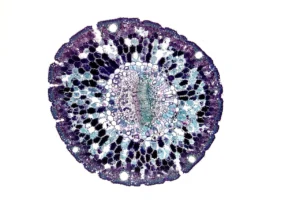
Quizartinib Recommended for Approval in EU by CHMP for Patients with Newly Diagnosed FLT3-ITD Positive AML
Daiichi Sankyo announced that quizartinib has been recommended for approval in the European Union (EU) in combination with standard cytarabine and anthracycline induction and standard cytarabine consolidation chemotherapy, followed by quizartinib single-agent maintenance therapy, for adult patients with newly diagnosed acute myeloid leukemia (AML) that is FLT3-ITD positive.
The Committee for Medicinal Products for Human Use (CHMP) of the European Medicines Agency (EMA) based its positive opinion on results from the phase 3 QuANTUM-First trial, which were published in The Lancet. The recommendation will now be reviewed by the European Commission, which has the authority to grant marketing authorizations for medicines in the EU.
In QuANTUM-First, quizartinib combined with standard cytarabine and anthracycline induction and standard cytarabine consolidation, and continued as maintenance monotherapy following consolidation, demonstrated a 22% reduction in the risk of death compared to standard chemotherapy alone (HR = 0.78 [95% CI: 0.62-0.98; p=0.032]) in patients with newly diagnosed FLT3-ITD positive AML. Median overall survival was 31.9 months for patients receiving quizartinib (n=268; 95% CI: 21.0-NE) compared to 15.1 months for patients in the control arm (n=271; 95% CI: 13.2-26.2) at a median follow-up of 39.2 months.
“Today’s positive CHMP opinion for quizartinib is an important step towards translating the clinical benefit observed in QuANTUM-First into an approved treatment option for patients in the EU with the difficult-to-treat FLT3-ITD subtype of acute myeloid leukemia,” said Mark Rutstein, MD, Global Head, Oncology Clinical Development, Daiichi Sankyo. “If approved, quizartinib would be the first FLT3 inhibitor approved specifically for patients with newly diagnosed FLT3-ITD positive AML.”
The safety profile of quizartinib in QuANTUM-First was consistent with previous clinical trials with no new safety signals observed. The most common grade 3 or 4 treatment emergent adverse events (occurring in ≥ 10% of patients) were febrile neutropenia (43%), hypokalemia (19%), neutropenia (18%) and pneumonia (11%). QTcF > 500 ms occurred in 2.3% of patients receiving quizartinib and 0.8% of patients discontinued quizartinib due to QT prolongation. Ventricular arrhythmia events with quizartinib were uncommon. Two (0.8%) patients receiving quizartinib experienced cardiac arrest with recorded ventricular fibrillation on ECG (one with fatal outcome), both in the setting of severe hypokalemia.




